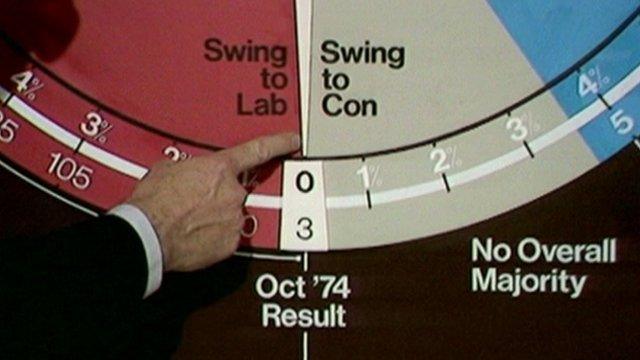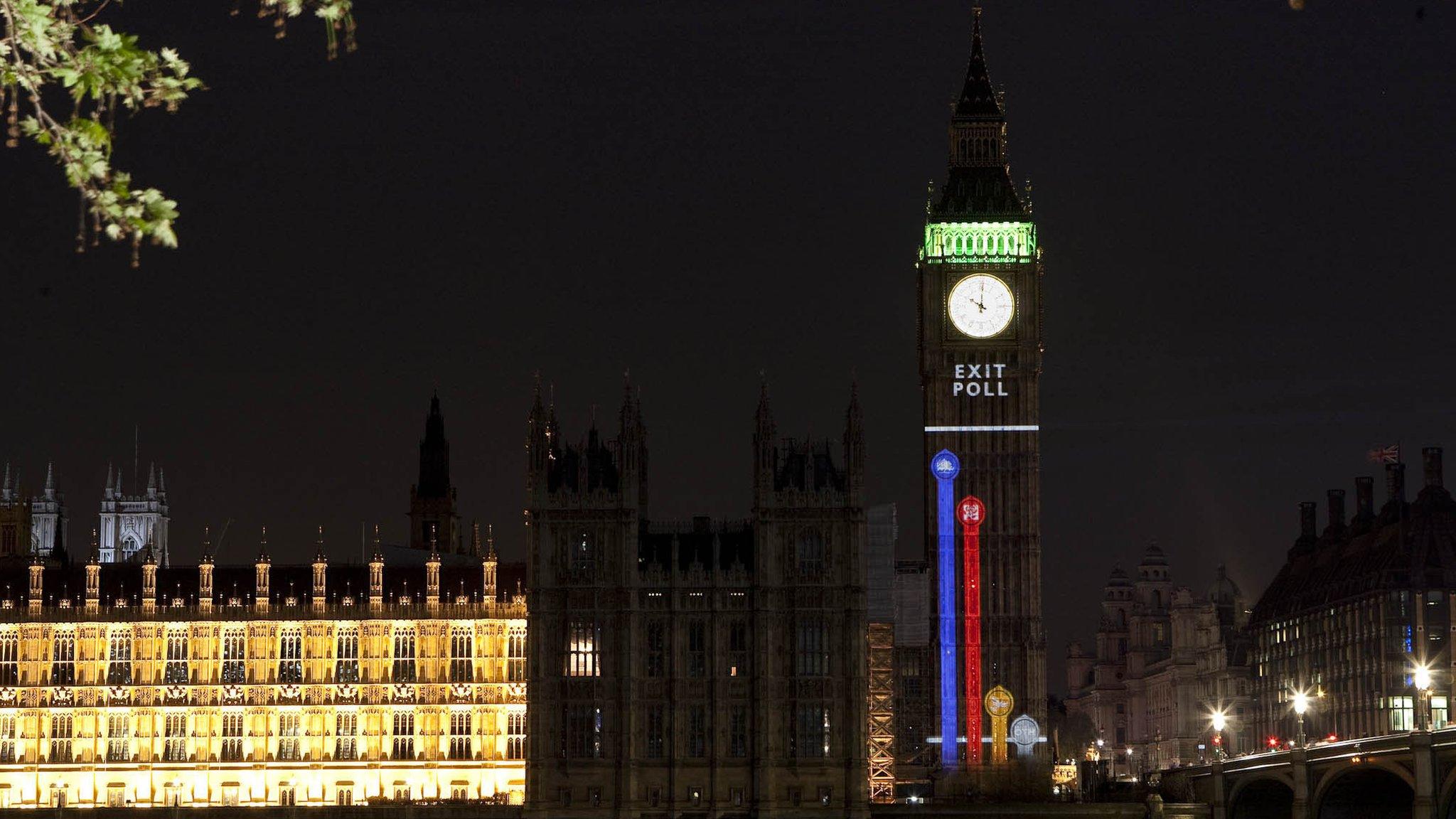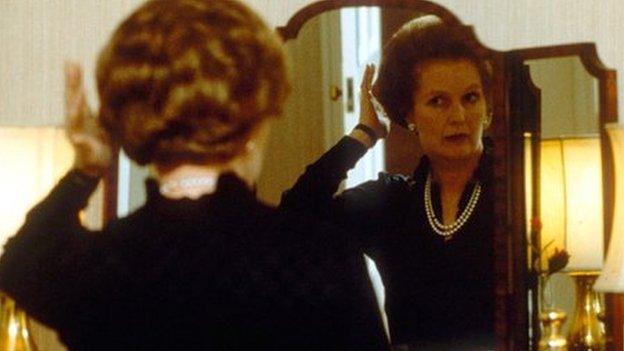Election 2015: How BBC election night coverage has changed
- Published
As voters get ready to decide who governs the country, we take a look back at how BBC News has covered election nights over the decades.
Our first special election night programme was in 1955, presented by Richard Dimbleby. It was a serious affair and we had a map surrounded by what look like bus destination signs.
Richard Dimbleby on election night in 1955
Four years later we got a computer - or as Richard called it: "An a-leck-tronic com-pewt-ar". In fact, we were so excited we gave it a name. Meet Ella:
Richard Dimbleby introduces Ella, the BBC computer, in 1959
The swingometer soon became a staple part of our coverage, although it was pretty basic in the early days. In 1970, for example, we had to call in a chap with a paint brush to make a few alterations:
A technician adjusts the swingometer with a paint brush in 1970
Outside the studio, we have long deployed dozens of BBC reporters to vote counts across the country. But as Michael Cockerell found out in 1979, things don't always go to plan:
BBC reporter Michael Cockerell waits for Prime Minister Callaghan in 1979
Thankfully, social attitudes have changed quite a bit since we started covering election nights - and segments like this one from 1964 about the "pretty studio girls" sound pretty bizarre now:
Viewers are shown some of the women in the BBC studio in 1964
Our interviews with female politicians have also come on a bit since this one conducted by Robin Day and Cliff Michelmore with Tory MP Janet Fookes in 1970:
Tory MP Janet Fookes looks unimpressed during an interview in 1970
Anyway, that's enough casual sexism - let's move on to another vice. In decades past, it wasn't uncommon to see our presenters unwinding with a cigarette or cigar.
Richard Dimbleby smokes a cigarette during the 1964 election coverage
To give the studio team a break, every now and then we venture out to speak to "ordinary voters". In this clip from 1974, a "housewife" rallies against a Tory government:
A BBC reporter speaks to a "housewife" on election night in 1974
We also like to bring you the voice of the younger generation. Invariably, that means hitting the dancefloor. We always send the most suave of our reporters, like Bernard in 1970:
Bernard Falk gauges the mood in a discotheque in 1970
Interviewing the winners and the losers is always fun - but technology can often be a stumbling block. Still, 'Brother Day' handled this example very well in 1964:
Robin Day interviews Labour's George Brown in 1964
When the results are in we usually know the best people to turn to for analysis. Not always, though, as this Brucie Bonus shows:
Bruce Forsyth talks to Andrew Neil on election night in 2010
And if our guests don't quite hit the nail on the head, we always have a bank of snazzy graphics to call on. Sometimes we get a little carried away, as demonstrated by Jeremy Vine:
Jeremy Vine analyses Nick Clegg's performance in local elections in 2008
Talking of presenters, our front man has been one of the few elements that hasn't changed much over the years.
We began with Richard Dimbleby in 1955 and his son, David, has been leading the coverage since 1979. But he's not always as serious as his father was:
David Dimbleby gets caught eating on election night in 1987
To see more clips like these, check out BBC News Timeliner, external and watch Peter Snow's Sixty Years of Swing.
- Published5 May 2015

- Published3 May 2015

- Published18 April 2015
